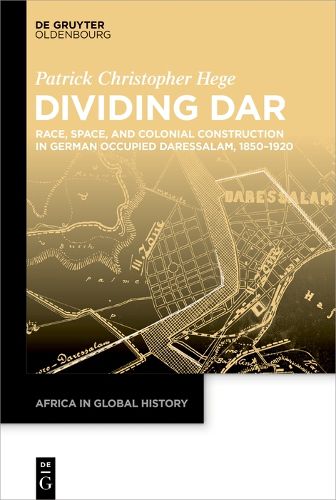Readings Newsletter
Become a Readings Member to make your shopping experience even easier.
Sign in or sign up for free!
You’re not far away from qualifying for FREE standard shipping within Australia
You’ve qualified for FREE standard shipping within Australia
The cart is loading…






How did a diversity of intermediaries shape not only the everyday divisions but also the dynamics and growth of the colonial city? This is the central question of Dividing Dar. Focusing on South Asian elites, Askari soldiers and police, and a minority of European settlers, the book illustrates how three continents converged to produce the colonial city in East Africa. Dividing Dar shows how negotiations, ranging from contestation to anti-colonial resistance, derailed German colonial plans to transform African "cosmopolitanism" into neatly divided races and city spaces.
Dividing Dar offers a novel approach to colonial urban history. In contrast to the traditional focus on top-down urban planning, knowledge production, and municipal politics, the book builds on a growing body of literature on colonial intermediaries and urbanism "from the middle" to address questions of historical agency, the construction of sociocultural hierarchies, and the mutations of African urbanism under the forces of German colonial occupation.
$9.00 standard shipping within Australia
FREE standard shipping within Australia for orders over $100.00
Express & International shipping calculated at checkout
How did a diversity of intermediaries shape not only the everyday divisions but also the dynamics and growth of the colonial city? This is the central question of Dividing Dar. Focusing on South Asian elites, Askari soldiers and police, and a minority of European settlers, the book illustrates how three continents converged to produce the colonial city in East Africa. Dividing Dar shows how negotiations, ranging from contestation to anti-colonial resistance, derailed German colonial plans to transform African "cosmopolitanism" into neatly divided races and city spaces.
Dividing Dar offers a novel approach to colonial urban history. In contrast to the traditional focus on top-down urban planning, knowledge production, and municipal politics, the book builds on a growing body of literature on colonial intermediaries and urbanism "from the middle" to address questions of historical agency, the construction of sociocultural hierarchies, and the mutations of African urbanism under the forces of German colonial occupation.